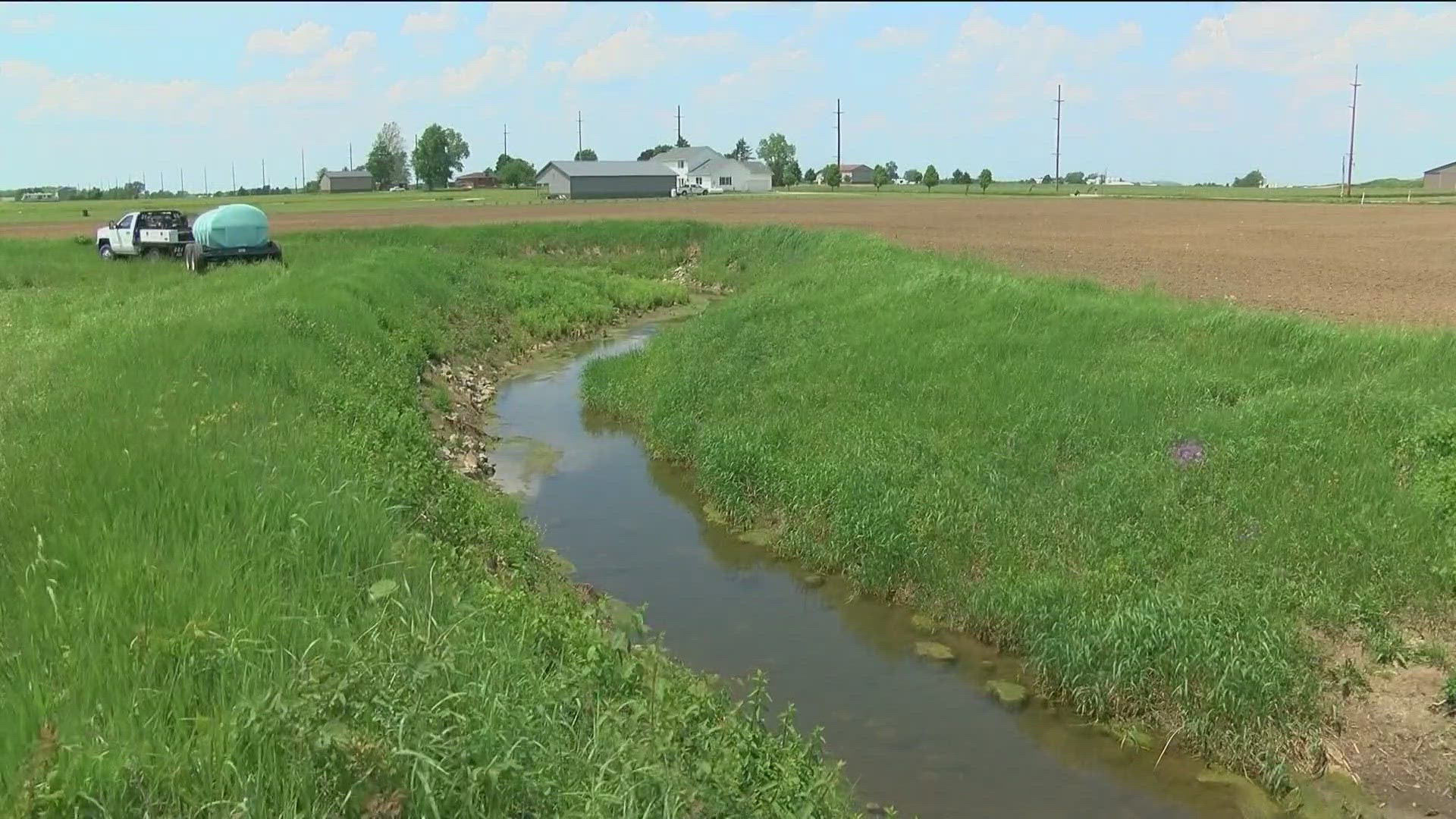TOLEDO, Ill. — It has been 10 years since the 2014 water crisis in Lake Erie that raised alarms in many corners of the state.
In 2019, Ohio Gov. Mike DeWine started a program called H2Ohio to encourage farmers to change the way they do things to slow down phosphates into the Maumee watershed. The toxic algal blooms showed just how bad the phosphorous had become from farm runoff.
It took time, but new guidelines came out and if farmers were not already practicing them, they were about to. Currently, 2600 producers have enrolled in the H2Ohio program, covering 1.8 million farm acres.
Brian Baldridge, director of the Ohio Department of Agriculture, says H2Ohio has incentivized state-funded programs.
Keith Truckor, a farmer in Fulton County, is like many others in northwest Ohio in that he and his family have enjoyed the benefits of Lake Erie. And, he's enrolled in the H2Ohio program.
"We’ve added equipment on this planter we variable rate all our fertilizer," Truckor said. "We soil test every other year so we’ve got a shape file in there that says this shape only requires 10 gallons of fertilizer, this one over here requires zero, so that machine will shut on and off depending on that shape file."
Farmers use cover crops like oats to prevent heavy rain from washing out fertilizer and soil. And as it decays, the cover crop provides additional nutrients.
Farmers have to document every bit of fertilizer they apply and have strict guidelines on doing that around the threat of heavy rain. So, they’ve created grassy barriers around fields to filter runoff as it goes into creeks.
"We as farmers try to do the right thing," Truckor said. "I would say 98% do the right thing. We don’t want the algal bloom in Lake Erie so we’re doing all we can. We are part of the problem we’ve identified that but we’re going to be part of the solution."
While farmers are doing a much better job, environmentalists point to factory farms growing thousands of livestock and creating millions of tons of manure a year.
Lake Erie Advocates, a Toledo-based environmental group, has support from the Lucas County Commissioners in its plan to pressure the Environmental Protection Agency into cracking down on the industry. They are filing a lawsuit against the EPA since we are 10 years into the problem and it isn't going away any time soon.

